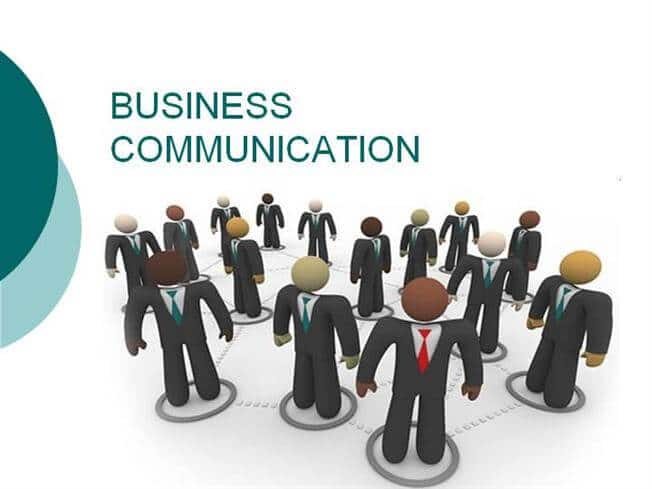Communication with other human beings is a necessary and nearly inescapable component of civilization. It is entirely up to you to be as approachable or demanding as you like. However, there is only one way to turn your concept into reality in the commercial environment: you must articulate it successfully, hence why business communication is important.
Be it with a company partner, a new employee, a client, or even your company insurance provider, you must communicate your message to advance. Effective communication in an organization is beneficial and necessary for the growth and stability of small businesses. Despite its widespread use, many business leaders ignore or mismanage this critical instrument, disrupting the entire organization.
Table of Contents
What Exactly Is Business Communication?
Business communications exchange information between personnel within and outside of an organization. Effective corporate communication is how employees and management connect to accomplish organizational goals and stay more aligned with the company’s fundamental values.
Its primary objective is to enhance managerial procedures, eliminate silos, educate personnel, and decrease mistakes.
Effective corporate communication is critical to an organization’s success and growth. In contrast to daily communication, corporate communication is always purposeful.
Forms of Communication
Three primary modes of corporate communication may be used in any size organization:
- Verbal communication is the process of sending or transferring information verbally to another person or party over a distance using words. This may involve video conferences, online interviews, live Skype sessions, and phone conversations, among others.
- Written communication can take place on either digital or analog media, in which one person writes information to be conveyed to another. This communication style can range from more traditional written methods, such as a paper letter, to more current ones, such as a typed email, a cloud-based (shared) document, or a message sent via a messaging app. Written communication (modern, digital) is one of the most prevalent modes of communication in the modern-day.
- Face-to-face communication (orally) is still an efficient method to communicate information and send essential facts to the relevant person, even if verbal communication frequently includes transmitting to a second party using electronic media.

How Many Types of Business Communication Exist?
Business communications are classified into four broad categories;
1. Internal upward communication
Internal upward corporate communication occurs when a subordinate communicates with a manager or another member higher in the organizational structure. Each leader should facilitate the flow of information upward to have a complete picture of the company’s activities.
Internal upward communications often take the form of surveys, comments, documents, and reports delivered by employees to their managers or team leaders. A marketing report, for instance, may include information such as total website traffic, social media engagement, and unqualified leads created.
2. Internal downward communication
Internal communication is directed downward from a boss to one or more subordinates. This method of communication might be a letter, a memo, or a vocal order.
Leaders should maintain a professional and straightforward tone while speaking with staff. A memo describing a new firm operation process, such as safety standards and new rules, is an example of this form of communication.
3. Internal lateral communication
Internal lateral corporate communication occurs between coworkers. Today, employees may connect in various ways: chats, texting, email, and employee communication software solutions.
This sort of communication occurs more frequently than other types of corporate communication. Additionally, frequent employee communication is critical for employee productivity and success.
4. External communication
External business communication encompasses all interactions with external parties, including customers, prospects, vendors, and partners. In comparison to all other forms of corporate communication, external communications occur on a less frequent basis.
Business Communication Techniques
There are several platforms for communicating in the three primary modes described above (verbal, written, and in-person), which typically incorporate digital and technological equipment in the modern era:
- Web-Based Communication: Web and cloud portals enable organizations to interact in unique ways by sharing and syncing data across individuals and the entire organization, regardless of location.
- Video Conferencing: Video conferencing enables business stakeholders worldwide to engage in online video sessions or e-meetings in which knowledge is disseminated, and feedback is offered.
- Reports and Presentations: Reports and presentations can be created or delivered using electronic channels (e.g., PowerPoint presentations or Slides) to exchange data with another person via internet delivery or in person.
- Phone Meetings: Phone meetings are multi-party sessions in which relevant parties within an organization discuss information (verbally), provide feedback, and respond to questions.
- Personal Meetings: Personal meetings usually consist of a one-on-one, face-to-face exchange of information between the two participants. This may involve interviews or a corporate event in general.
- Suggestion or Feedback Box: Suggestion or input boxes enable organizations to use written (or digital) communication forms to collect anonymous or non-anonymous feedback from employees. They may take the form of remarks, inquiries, requests, feedback, or general ideas.
- Email: is among the most widely used methods of utilizing digital, textual communication technologies to deliver essential information inside a corporation. These email suites are compatible with desktop computers, tablet PCs, and mobile devices.
- Business Instant Messaging (Slack): Like email, messaging programs enable two (or more) people to communicate digitally and in writing. While email is relatively instantaneous, it is often a slower mode of communication, and it may require a while to receive a response.
Each day, according to Blue Source, upwards of 205 billion emails are sent throughout the globe, with only about a third of them being opened.
Instant messaging tools such as Slack, Messenger, and Skype provide near-instant communication across a network and support multiple participants and synchronized chats and data kept in the cloud for collaboration with other parties.
Additionally, electronic mail is stored on servers and retrieved when necessary by client-side applications. In contrast, instant messages are typically immediately pushed to client-side applications from remote servers.
They are comparable to instant phone calls (messenger apps) rather than mailed letters or faxes (i.e., emails).
What Happens When a Business Is Cut Off from the Outside World?
Without efficient communication in a corporate context, the overall structure of a corporation begins to crumble:
- Routine duties are neglected.
- Schedules devolve into chaos.
- No roles or functions are assigned.
- Employees are irritable and antsy.
- Clients get dissatisfied and lose interest.
REASONS WHY BUSINESS COMMUNICATION IS IMPORTANT
1. Enhances staff engagement
Staff engagement research indicates that leadership communication is the most critical internal communication element statistically associated with employee engagement. Internal communication departments have a vital role in assisting, mentoring, and informing leaders of the essential nature of communication.
2. Eliminates inbox saturation
Within businesses, email is used for a variety of purposes, including data requests, corporate communications, and responses, status reports, work scheduling, communications with clients and suppliers, meeting invitations, document distribution, and notifications from human resources regarding various team activities, benefits, and anniversary wishes.
However, only a tiny percentage of emails that arrive in our inbox need immediate attention. We categorize critical emails by source or subject. Additionally, many of the emails we get are entirely irrelevant to us.
Internal corporate communications that use new solutions for employee discussions and interactions have reduced this email overload issue.
3. Eliminates silos of communication
Excessive irrelevant content frequently results in the establishment of information silos. That is, critical information on an employee can quickly be lost. Consider why your organization’s data is lost.
Effective internal company communication and the use of the appropriate communication tools are critical to overcoming this obstacle, and hence is one of the major reasons why communication is important in business.
4. Boosts employee output
4 in 5 employees say that good internal corporate communications and adequate workload division benefit their job performance. Yet, with information overload, employees frequently spend excessive time seeking content necessary to accomplish their jobs.
If an average worker spends 2.5 hours a month seeking information, this equates to an entire week lost hunting for something that should be readily available.
5. Facilitates inter-departmental collaboration
Without an efficient communications plan, it is challenging to maintain good interdepartmental interactions inside businesses, and workers need to collaborate closely to be more productive.
For instance, your research department must communicate with your marketing division, and your business office must communicate with your IT department. Apart from communication, they might be essential in enhancing interdepartmental team cohesion.
6. Facilitates contact with geographically dispersed employees
According to the Global Mobile Workforce Forecast Update, by 2025, more than 40% of the world’s working population will be mobile. Additionally, in affluent nations such as the United States, the percentages might eventually exceed 75%.
This necessitates a paradigm shift in communication, leadership, and management. Remote teams encounter various communication issues, including coordination across time zones, information silos, and bridging language and cultural obstacles.
Additionally, distance frequently makes it more difficult for team members to feel connected. Improved internal corporate communications may significantly improve the way remote personnel cooperate and feel.
7. Contributes to decreased staff turnover
Businesses with more engaged and pleased workers have much lower employee turnover rates. To attract and retain Millennials and younger generations in the workforce, firms must ensure that employees are knowledgeable on job-related issues.
On the other hand, excessive irrelevant information frequently results in tension, disengagement, and dissatisfaction, resulting in decreased staff retention.
8. Strengthens efforts to share knowledge
One of the primary objectives of firms engaging in internal communications is to enhance knowledge exchange and best practices.
Employers must facilitate knowledge exchange inside their firms in a world where people continually evolve and learn new skills. Internal company communications would struggle without a well-defined plan, as would information transfer and organizational knowledge.
9. Fosters more employee advocacy
Employers that understand how to communicate successfully with their workers have a better chance of converting them into brand ambassadors. Brand advisory role is not as challenging to obtain as many businesses imagine.
Indeed, satisfied workers would gladly participate in brand ambassadorship initiatives, and there are four primary ways in which business ambassadorship and employee advocacy may benefit a business:
- Raising brand awareness
- Increase your employer brand’s visibility and attract top personnel
- Increase your marketing efforts
- Boost sales
10. Enhances client retention and satisfaction
Improved company communication also results in increased client satisfaction, and when an organization’s communication is lacking, two things do happen in terms of quality and customer satisfaction.
To begin, personnel in customer-facing jobs will lack the necessary information. Second, clients will perceive a low level of employee morale and will have a terrible experience. When an employee applies best practices this contribute to how staffs are being retained.
11. Contributes to the development of a stronger corporate culture
A sound corporate communications plan is critical for developing a positive corporate culture and work environment. Organizations that communicate openly and transparently have a far healthier work environment, employee motivation, and satisfaction.
On the other hand, firms that overlook corporate communications as a tool of enhancing workplace culture suffer from poor engagement, high turnover, and low levels of employee and customer satisfaction.
METHODS FOR ENHANCING BUSINESS COMMUNICATION
1. Establish explicit objectives and expectations
Without vision and goals, no business can be founded. If your firm does not have one, you may want to reconsider your business strategy. Setting business objectives will assist you in determining the most effective means of achieving success in your organization.
However, these objectives should not remain unspoken; they must be conveyed to all stakeholders in your firm. By doing so, team leaders and employees will better understand their goals and take more efficient steps to boost overall job performance.
2. Develop your listening skills
If you want to boost employee productivity and morale in your firm, practice active listening. While you may have the authority to determine and manage the company’s logistics, if you are unable to hear what your workers are suggesting or the challenges on the floor, the organization will never operate smoothly.
Receiving feedback from team members or customer suggestions may provide practical and intangible benefits to your organization.
3. Rather than dictating, collaborate.
Communication is a two-way street, which is why you should avoid becoming a dictator over how things will be. You may organize frequent meetings with each department within the organization to discuss ongoing initiatives, listen to concerns, resolve issues, and foster collaboration.
This concept is far superior and more successful than simply exchanging emails. Thus, to enhance business communication, remember to be an engaged listener and to project an air of openness throughout these sessions.
4. Resolve conflicts promptly
One factor contributing to poor communication and company management failure is allowing things to fester rather than resolving them promptly.
It is more convenient and professional to solve an issue immediately rather than waiting for it to enrage and influence everyone else.
Often, a brief and precise chat may suffice to fix any professional or interpersonal concerns without jeopardizing the company connection.
5. Utilize technology
If your organization is reliant on email, you are falling behind the curve, as communication in the current day is faster and more successful when technology is used. You may leverage shared platforms or communication software to enhance communication inside your organization to interact efficiently and in real-time.
Collaborative communication solutions enable colleagues to stay informed of one another’s progress and lead a project. Utilizing technology will undoubtedly allow them to communicate more effectively, collaborate more closely, and accomplish more.
FAQ
What is the significance of communication?
Perhaps the most crucial of all life skills is good communication. It enables us to communicate with others and comprehend what is transmitted to us.
Which aspect of corporate communication is the most critical?
According to a poll, the top three most valued abilities for employees are leadership, cooperation, and communication.
What can business communication teach you?
The business communication program teaches students how to interact effectively with individuals from many origins and cultures—a crucial business skill and a source of life enjoyment. Enhancing manners throughout all current media platforms.
Why is it critical to be an effective communicator?
Practical communication skills are crucial for ensuring that you and others comprehend information correctly and quickly. On the other hand, poor communication skills might result in misunderstandings and unhappiness.
Why is communication critical in business?
Regardless of the industry in which you operate, your firm is doomed to fail without communication. Effective communication is necessary for success, and communication breakdown nearly usually results in failure.
CONCLUSION
Establishing an open-door policy, ranging from the senior management to the employees on the line, is a means of ensuring all your members know that the administration is always accessible, ready, and eager to express any problems.
It does not matter how large or tiny your business is; the firm can never be effective without possessing all these individuals supporting you to attain your objective. So, if you fail to establish solid working connections with them, your ideas might not be able to function.
If you liked this article, then please subscribe to our YouTube Channel for videos relating to this article. You can also find us on Twitter and Facebook.









